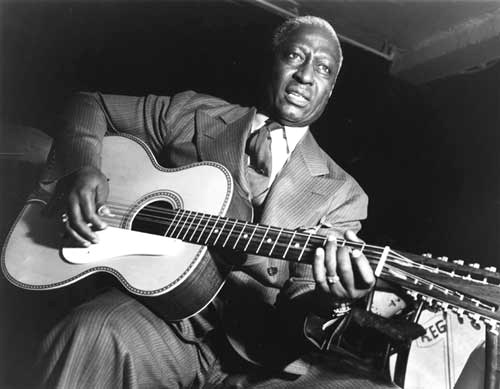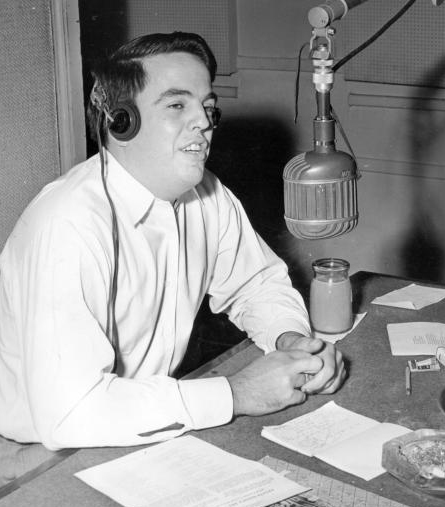
When Michael Taft of the American Folklife Center received a call asking if the Center would be interested in an old Lead Belly disc, it seemed impossible that there could be one that wasn’t already in their collection; but when Taft asked what was printed on the label and heard “Presto” he was intrigued. Presto was not a record company—it was a brand of recording blank that the Library of Congress had used for field recordings in the 1930s and 1940s.
 The disc included a song never heard elsewhere, and it provided the key for identifying the recording session. Titled Todd blues, the song was an improvisation that referred to “Mister Todd” and “Mister Sonkin”—Charles Todd (left) and Robert Sonkin (below left), who collaborated on several field recording trips for the Library of Congress in the 1930s and 1940s.
The disc included a song never heard elsewhere, and it provided the key for identifying the recording session. Titled Todd blues, the song was an improvisation that referred to “Mister Todd” and “Mister Sonkin”—Charles Todd (left) and Robert Sonkin (below left), who collaborated on several field recording trips for the Library of Congress in the 1930s and 1940s.
 This blues took the form of a humorous lament on the departure of one of the partners: “Mister Todd went away, Lord, just after Christmas Day/He’s going to California…Mister Sonkin sitting here with his head hung down.” These lines clearly place the recording on 20 January 1942, when the pair recorded Lead Belly in New York City, shortly before Todd left for a new job in California.
This blues took the form of a humorous lament on the departure of one of the partners: “Mister Todd went away, Lord, just after Christmas Day/He’s going to California…Mister Sonkin sitting here with his head hung down.” These lines clearly place the recording on 20 January 1942, when the pair recorded Lead Belly in New York City, shortly before Todd left for a new job in California.
This according to “A new old recording by Huddie Ledbetter” by Michael Taft (Folklife Center news XXIX/3 [summer 2007] pp. 13–15).
Today is Lead Belly’s 130th birthday! Below, Pete Seeger recalls meeting and performing with the great singer-songwriter.
[youtube=http://www.youtube.com/watch?v=4X9svGYLXwA]
Related article: Pete Seeger, filmmaker (bibliolore.org)
















